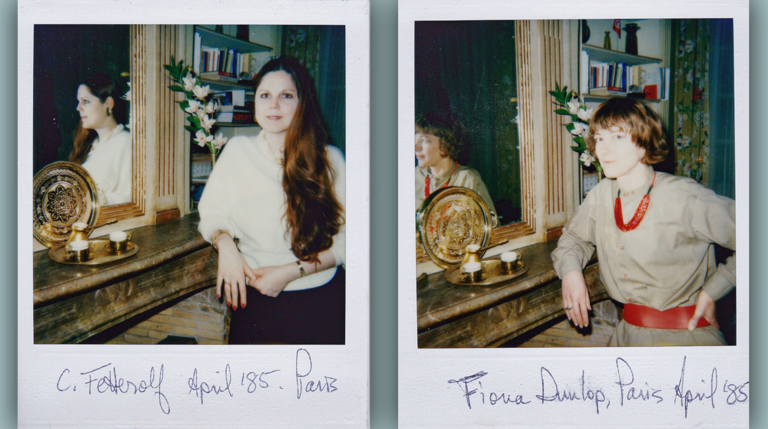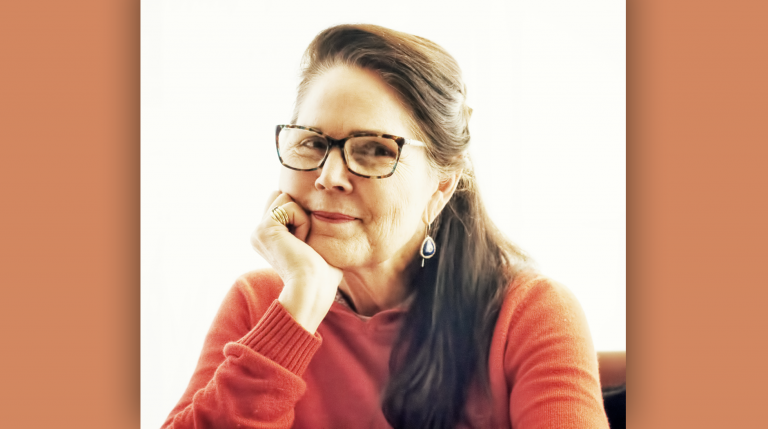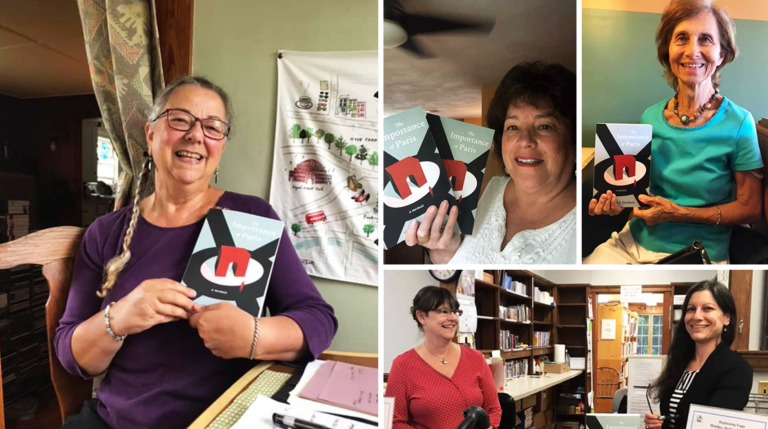Read a good book recently? Do tell. A voracious reader myself, I am curious to know how my fellow readers choose their books. With my memoir The Importance of Paris coming out in less than three weeks, I would also love to know how many of you have read a memoir in the last six months, and which one(s).
What I’m Reading
A few of you have asked which kind of books I read and if reading inspires my writing. Yes the two are connected. Right now I’m listening to the audio version of Romantic Outlaws: The Extraordinary Lives of Mary Wollstonecraft & Mary Shelley by Charlotte Gordon (2015). When perusing the library shelves, sometimes the perfect choice falls into my hand and this was one of those times. Of course you can hardly go wrong with any title that has won the National Book Critics Circle Awards, like this one has.
Romantic Outlaws is non-fiction and recounts the intertwined stories of two avant garde women’s lives (a bit like my forthcoming memoir) although Romantic Outlaws concerns a famous mother-daughter duo. Tragically the mother, Mary Wollstonecraft dies at age 38, in 1797, just ten days after giving birth to her daughter Mary Godwin Shelley. But her child came to know and appreciate her mother through the writings she left behind. This is another example, of the importance of leaving behind written records, of our insights and experiences for future generations.
An amazingly farsighted activist and author, Mary W. was labeled a radical in her Victorian English era, because she dared to believe in freedom, education and equality for women. And despite the immense social condemnation she faced during her lifetime, Mary W. persevered, publishing A Vindication of the Rights of Woman in 1792. Though she did not live to see the changes she fought for become law, she used her pen nevertheless to fight for women’s rights. What she advocated has since improved countless lives. Her work blazed a trail for her daughter and the rest of us.
Mary Godwin Shelley followed in her mother’s advancing footsteps and became a visionary author in her own right. Among the books she wrote was the groundbreaking Gothic novel Frankenstein — the first example of what became the new genre of science fiction. It appeared in London in 1818 anonymously, when Mary S. was only 20. She was also a source of inspiration to Percy Bysshe Shelley, the famous Romantic poet, who wrote odes to Mary S. and married her.
The writings of progressive authors encourage one another as well as their readers. And the causes of social justice are advanced when authors build upon each others ideas. I have just discovered a cross-cultural connection between Mary Wollenstonecraft and a Frenchwoman contemporary, Olympe de Gouges.
One year before A Vindication of the Rights of Woman appeared, Olympe published her Declaration of the Rights of Woman and the Female Citizen, in 1791. Olympe cleverly based hers upon the The Declaration of the Rights of Man and the Citizen, which the French National Constituent Assembly had just passed in August 1789. She stated in her preamble “…Woman is born free and remains the equal of man in rights. If woman is entitled to mount the scaffold (of the guillotine); then she must be equally entitled to mount the rostrum [of the National Assembly].”
That same year, 1791, Mary W. published An Historical and Moral View of the Origin and Progress of the French Revolution and may have known of Olympe de Gouges and her pamphlet. Although Mary W.’s work was preserved for posterity, Olympe’s was largely forgotten for over 220 years. Her own son disavowed her to keep his position in the French military. When she was sentenced to death for her efforts on behalf of the French Revolution her enemies ordered all her papers be burned. She had written to advocate an income tax and tax on capital, equality between blacks and whites, a public health system, welfare services for the needy and women’s rights to vote and take part in political life. These principles have since become essential to the bedrock of modern Western society.
Early on Olympe had warned the public that Maximilian Robespierre was only talking about democracy but was actually a dangerous power-mad demagogue. History proved she was right. One of the 370 women guillotined, Olympe de Gouges was only 45 years old when she called out, “Children of the homeland, you shall avenge my death!” just before the blade fell on November 3, 1793. After 224 years of exclusion, silence, contempt and suppression this woman most had never heard of was finally admitted into the French National Assembly. Its president Claude Bartolone, exclaimed in 2016, “At last we have arrived at this moment! At last, Olympe de Gouges is entering the National Assembly!” A granite bust of her now stands overlooking the descendants of those who attempted to erase her.
Memoir Workshop Pilot is Full
Thanks to each of you who expressed interest in our upcoming event on Sunday June 23. Those who asked us to reserve a seat must reconfirm and reply as we now have a waiting list. We may offer this again in the autumn.
Ceremonies
Our Summer Solstice Lodge ceremony, in newly rebuilt Lodge, will be held on Saturday the 22nd of June. Please RSVP as Solstice and Equinox ceremonies fill up fast. Our July Lodge ceremony will be on Sunday the 7th.



